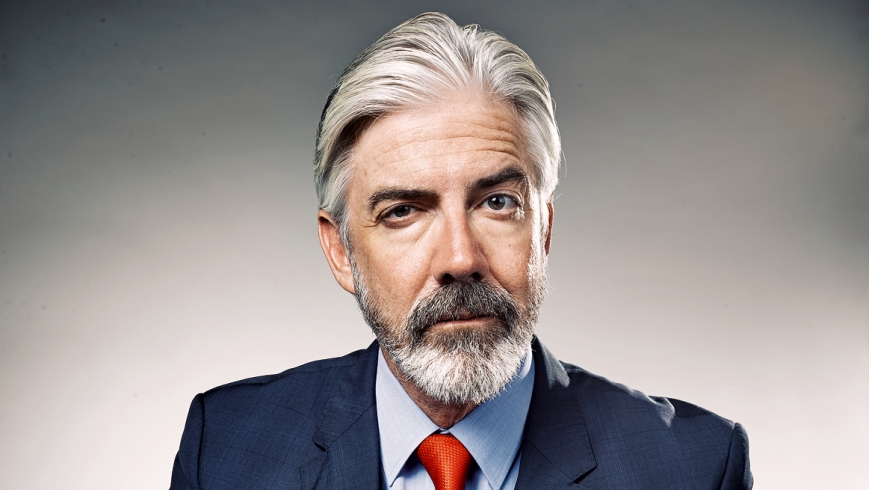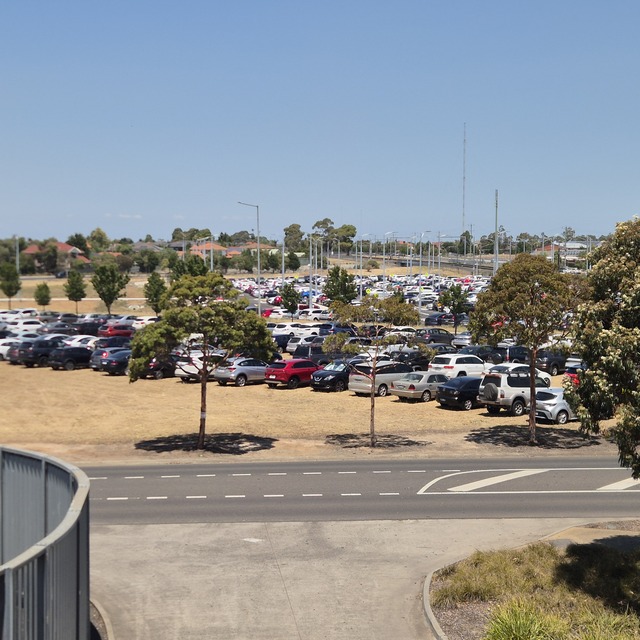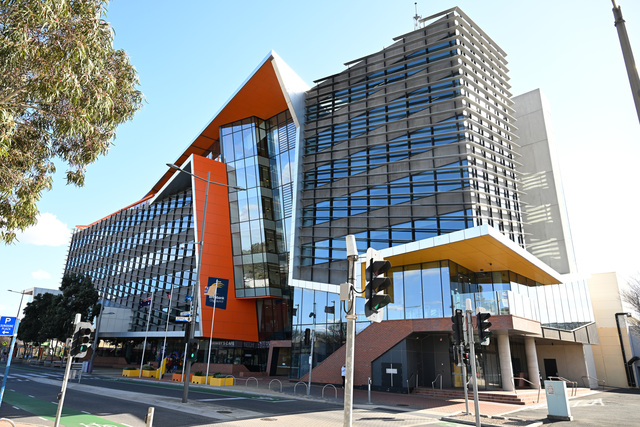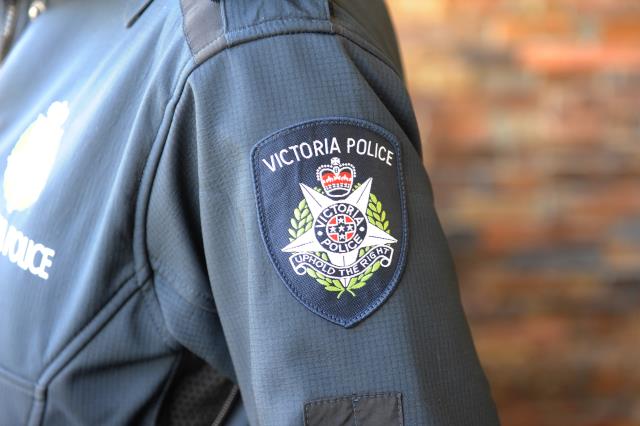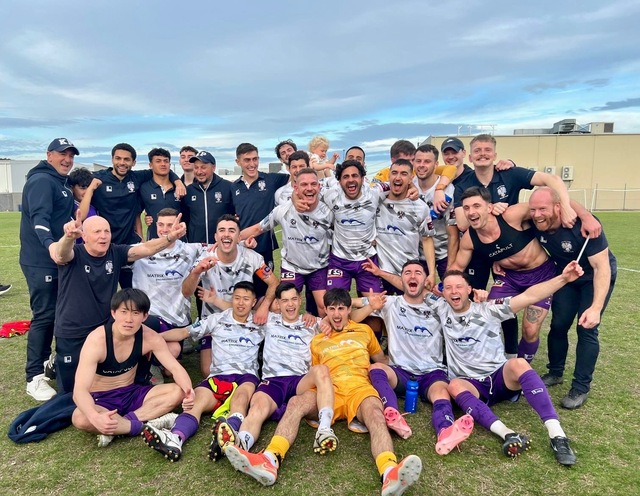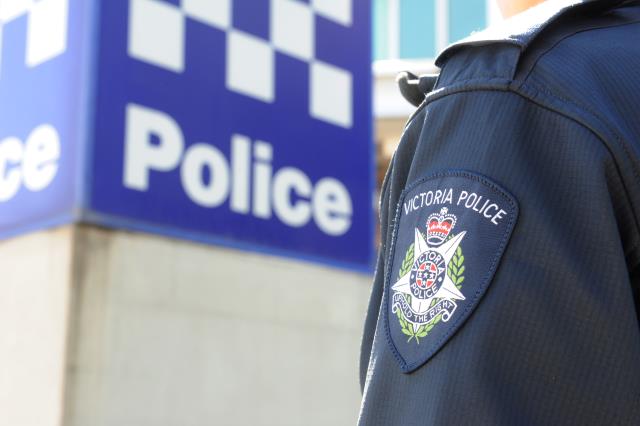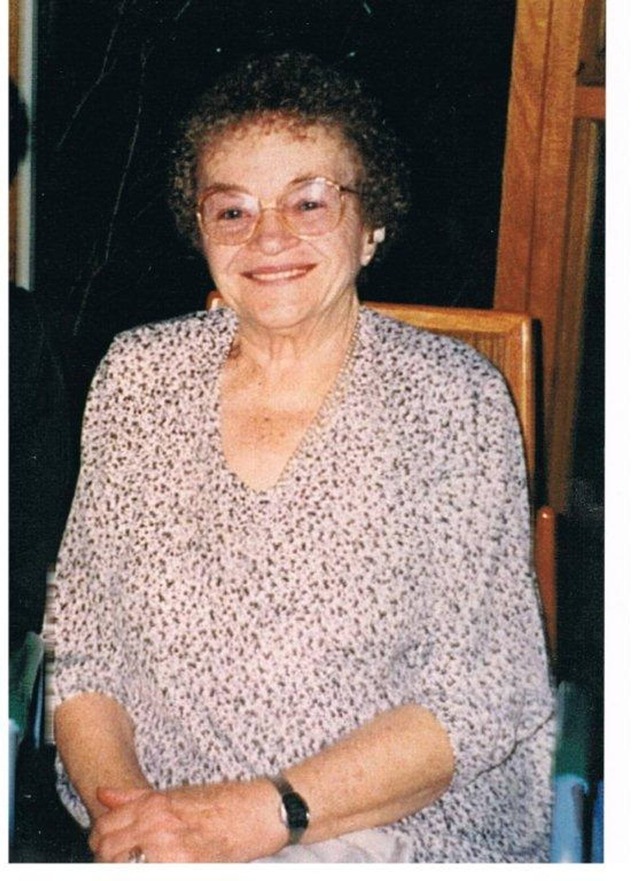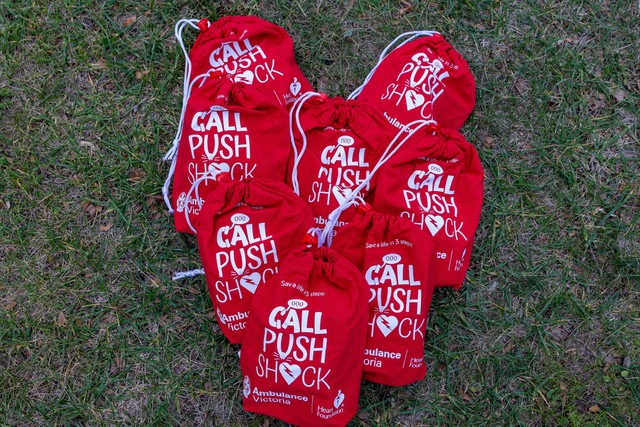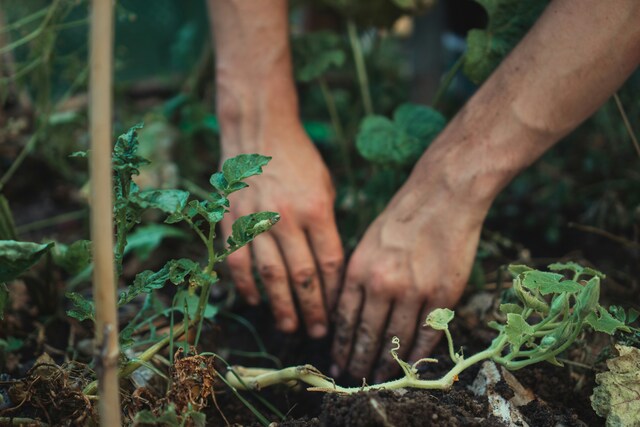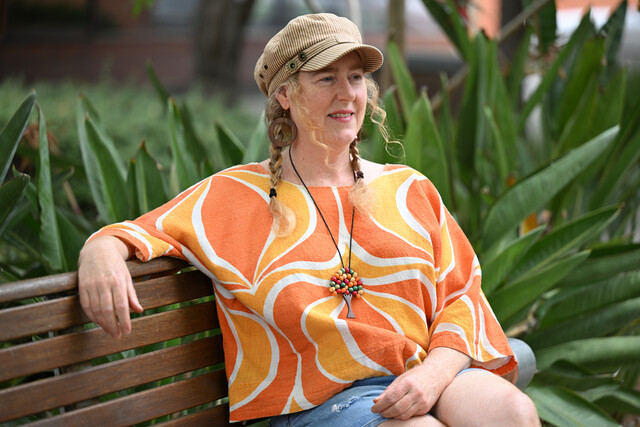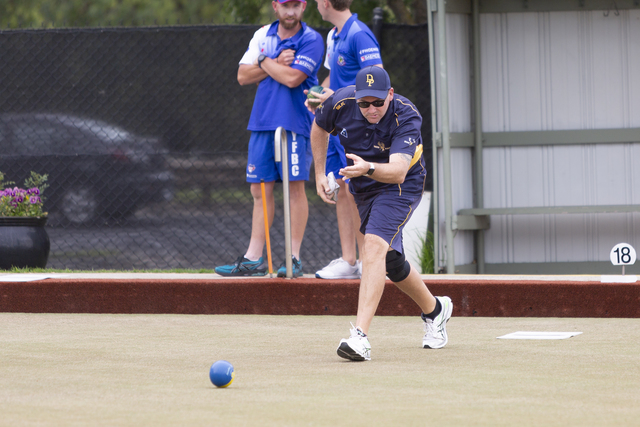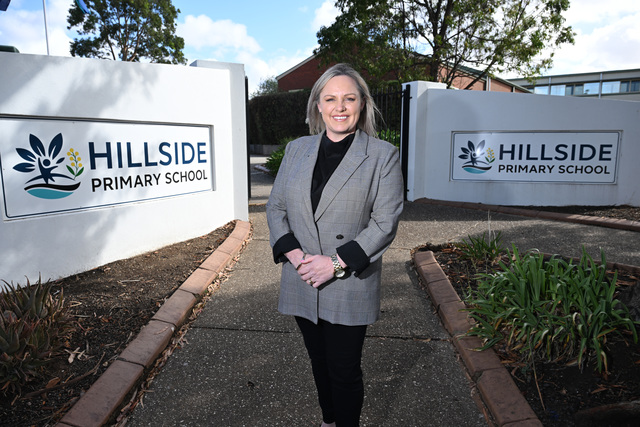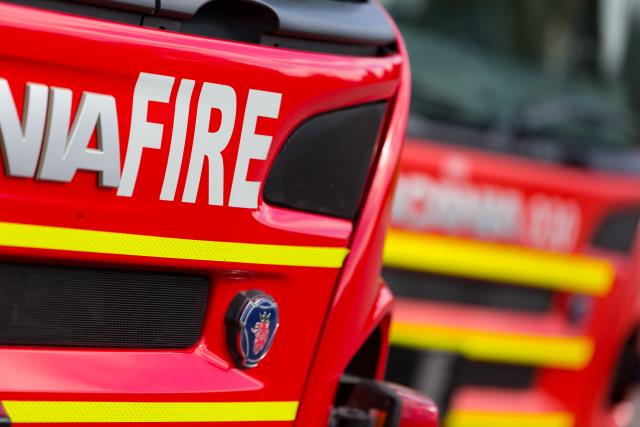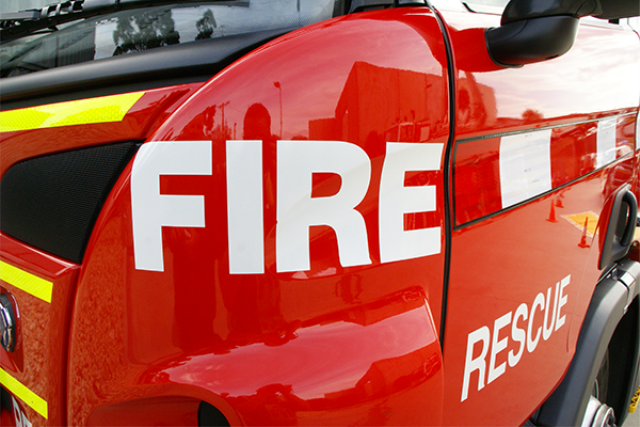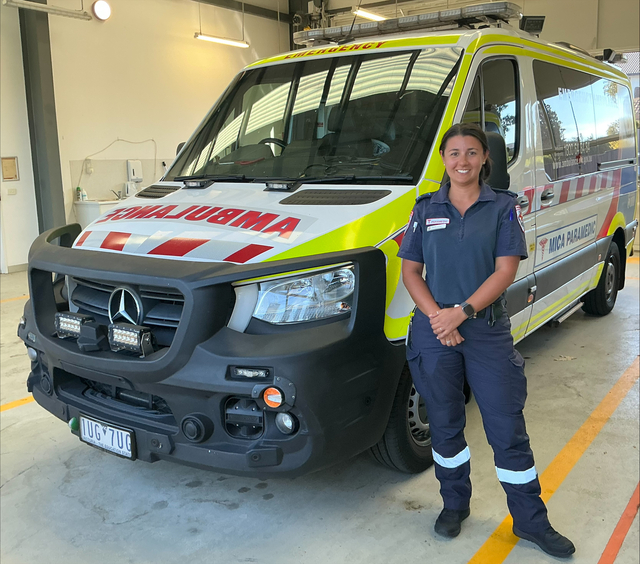“Comedy’s easy to know when you’ve got it right because the audience laughs,” says a reflective Shaun Micallef of his bread and butter. “It’s honestly the easiest thing to be proved or disproved. Drama’s a bit vaguer. Drama you can get away with more or less because it can be grey. But if comedy’s not funny it’s dead. It’s nothing.”
On a Wednesday morning at the ABC’s writing hub in leafy Elsternwick, the veteran comedian is sitting in a stock standard office but springs forth to play host.
At first it’s hard to separate the real Micallef from the trick bag of erratic and oddball characters that have become his trademark.
Unmasked, Micallef is sincere, articulate, and a smidgen on the quiet side.
The 51-year-old is casually dressed and sporting a bushy beard set to be shed before he takes to the news chair for the third series of his satirical news and current affairs program, Mad As Hell.
“It will be gone by the time the series goes to air,” he says.
“I think that [the grey in it] automatically cancels it out being regarded as a hipster’s beard.”
A collection of posters adorning the walls sparks the conversation. There’s Micallef’s favourite film, the American classic It’s a Wonderful Life.
There’s Dean Martin and Jerry Lewis, the Marx Brothers, Peter Sellers, Danny Kaye; and Jerry Lewis a second time.
“As a kid I was a big fan of his,” Micallef says. “This skinny, gawky, spastic comedian. It appealed to me.
“Physical comedy was quite important. Growing up I think I responded well to that.”
The return of Mad As Hell is in full swing and Micallef seems glad to be back on television screens dissecting the week’s issues.
“On the night [of filming] you make sure there’s a bit of air in there so you can improvise if you want to. Because I think that’s important, otherwise it’s got no blood in it.”
Micallef confesses he didn’t bother following news for much of last year and came up to speed only over the past few months. “There’s a new government in. I don’t know if you knew that,” he quips. “The nature of the show means that it needs to be topical and as up to date as can be. It’s recorded Tuesday night and goes to air Wednesday night. In the space of a day hopefully nothing major happens.
“Mind you, we’re not a real news service so it doesn’t really matter,” he adds with a laugh.
Asked to describe the series, Micallef says it’s a “squint and you’ll think it’s a news program sort of show”, declaring almost apologetically that he reckons it actually looks better than a lot of real news programs.
Micallef drew inspiration for the series from popular US programs The Daily Show and The Colbert Report and dreams of one day pushing the show to five nights a week.
He suggests there’s no line he won’t cross for a laugh but concedes some topics covered in the second series made him cringe.
“There were certain harder jokes about the world, which seemed mean spirited when you put them in front of a live audience. Making light of something quite serious feels very cynical. It probably is.”
The shift in thinking is one of the major reasons politics, and the likes of Prime Minister Tony Abbott, has become the show’s pet topic.
“Our obsession seems to be with Australian politics, which – let’s face it – never really deals with anything majorly important.”
Micallef had assumed people derided in the show found it amusing until one occasion where he copped a bit of flack.
“I was actually rung by a politician who took exception. I’m not quite sure how he got my mobile. If I was a real journalist I would have asked that question but I was flabbergasted to be talking to this dude on a Sunday morning. He didn’t leave me his number and I never heard from him again.
“He took exception to something that was said about him in the program and seemed to think it was almost like a real news program and we should be representing him in a fair way. I said ‘We don’t have to be fair. It’s a comedy show’.”
Micallef says the incident opened his eyes to the fact that politicians are real flesh and blood human beings who have feelings.
“If you’re gonna make a joke, I think it should be about what they’ve done rather than who they are or appearances or anything. Indeed, that is by and large how we approach things. I’m not sure we take cheap shots at people at all. Hopefully we don’t.
“Mind you on a slow news day, why not,” he says after a pause.
Micallef says the core of Mad As Hell, like with most projects he tackles, can be traced back to his roots in sketch comedy.
“Everything I do has that element in it. Even Mad As Hell, if you look at it from a certain angle, is basically a sketch show.”
Born in Adelaide to an Irish mother and a Maltese father, Micallef was drawn to the world of entertainment from an early age.
“I was a kid who was attracted to comedy. I liked watching Jerry Lewis, for example. I’d then go and amuse my friends or my family by doing an impression of him or something that was like it. So I absorbed a lot of that.”
Micallef found inspiration close to home.
“Laughter was pretty highly valued. I had a funny uncle and a funny grandfather. Oddly enough I got most of my approach from my father who was very straight.”
Micallef performed throughout his teenage years and into university but then went on to become an insurance lawyer.
“I never really considered it [comedy] was a sensible career or even job,’’ he says. “I certainly didn’t think I could sustain myself and an eventual family from it. Also, I don’t like actors. I don’t like the idea of being an actor.”
In hindsight, Micallef says his late start would prove a blessing in disguise.
“I made all the mistakes I could have made and embarrassed myself by and large in my 20s away from the television camera. Then when I was about 31 that’s when I turned up on TV.”
Micallef ventured to Melbourne in the early ’90s where he first gained recognition as a cast member on cult sketch comedy show
Full Frontal. His most famous character, the punch-drunk boxer Milo Kerrigan, is still fondly remembered today.
A string of credits over the next two decades has included his beloved show The Micallef Program, a stint on SeaChange as Warwick Munro, hosting game show Talkin’ Bout Your Generation and The Logies, two books, and even playing horse trainer Lee Freedman in the movie The Cup.
“I wouldn’t like to have never had a crack at it,” Micallef says after digesting the length of his career for a few breaths.
“I’m glad I did it. I’d hate to think that I’d be sitting there bitterly watching television thinking I could do better than that.”
The father of three admits he couldn’t have foreshadowed the heights his career would reach.
“I thought I’d be a writer. I thought by 30 well … you know. Performing is neither here nor there, really. I had a taste for it and I find the easiest way to get your material across is to do it yourself,’’ he says.
“That I’m a person on camera is a bit of a surprise and unusual. I’m not entirely sure that I would lead with that.
On my tax returns I write occupation – writer. That’s what
I am. I’m a writer performer. I’m not a performer writer. I’m not an actor.”
Micallef is adamant he doesn’t look back on the so-called golden age of Australian comedy, which he was a central part of, with nostalgia.
The past, like his Logie for Most Popular Presenter, is tucked away in a dusty cupboard.
He says what drives him most these days is the adrenalin rush of trying something new.
“When I finish something there’s a little period, about a month or so, where I can see it accurately for what it was. When you’re in it it’s always hard to judge. When you’re in it you have to think it’s the most fantastic thing in the world otherwise you’d be doing a bad job.”
Micallef has already penned two books, Smithereens and Preincarnate, and is working on a third that explores America.
He reveals a sitcom is in the pipeline but he refuses to elaborate for fear of jinxing it.
He argues he’s not a workaholic but does acknowledge finding it difficult to take a breather, suggesting his off button is more like a lever that gradually eases him into a state of relaxation.
There are no legitimate hobbies to speak of, other than an appreciation of film and spending time with family, which usually consists of hopping in the car with his boys and heading down to a comic book store in Coburg on weekends.
“My kids make me laugh. I tend to laugh at stuff that’s got nothing to do with comedy. Comedy is the recreation of those moments that I have in real life,” he says.
From the outside looking in, you get the clear impression Micallef is happy with his lot in life and he duly swats away any notion of the sad clown stereotype.
“I don’t have a dark side. That’s an attractive way of making yourself seem interesting. That’s not to say some people don’t have the dark side and the duality. [But] I’m not sure I could limit myself to only two sides.”
What’s his greatest fear as a performer?
“I don’t know whether I have any fears,” he muses.
“I know enough about the business that at some point you approach the end of what is your shelf life and you go do something else.
“But I’ve got a few options. When I’m no longer telegenic enough, there’ll be a stage where it will be better for me to move behind the camera and produce and direct and write; which I do anyway.”
That day seems a while off for now, with the third instalment of Mad As Hell chugging along and a fourth already in the works.
“I’m always surprised when something lasts more than one episode,” he jokes about the program.
“You go to a third series and that’s gravy. That’s usually it for me. I don’t think I’ve done anything more than a third series.”
» Shaun Micallef’s Mad As Hell screens on ABC1 on Wednesdays at 8pm

